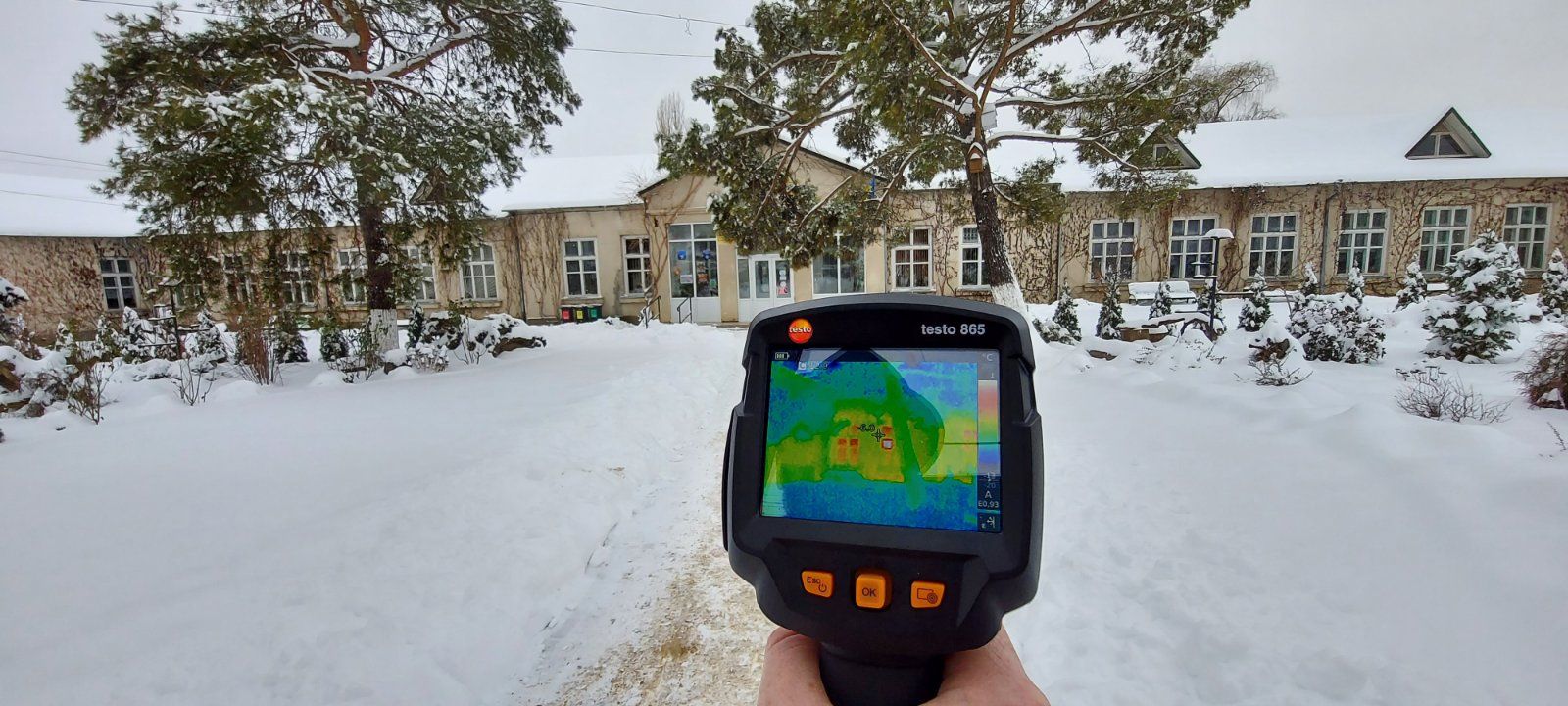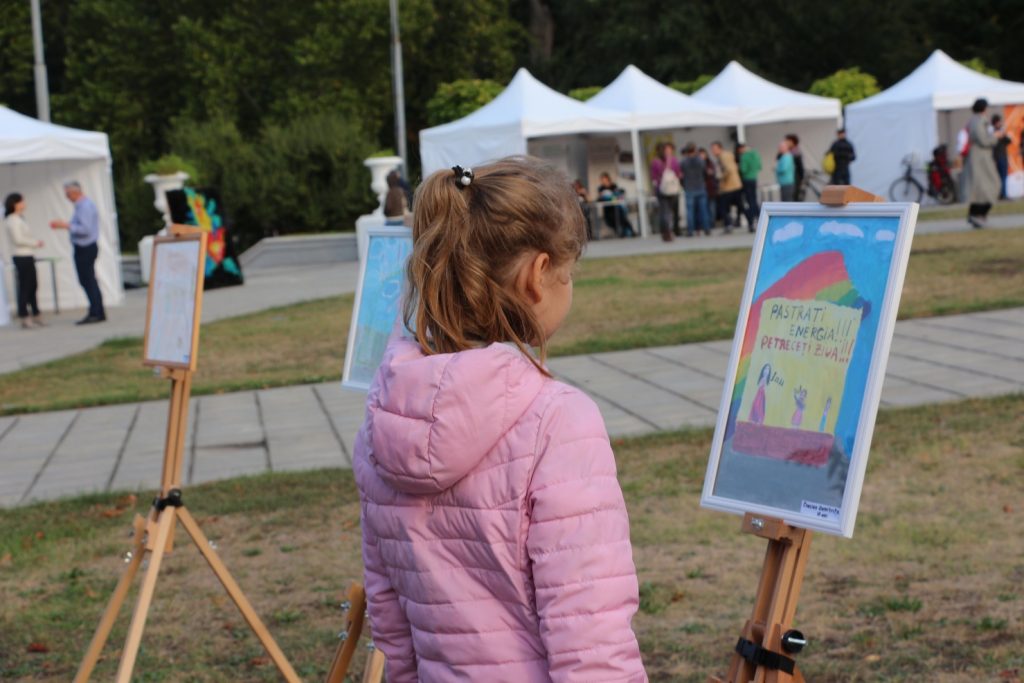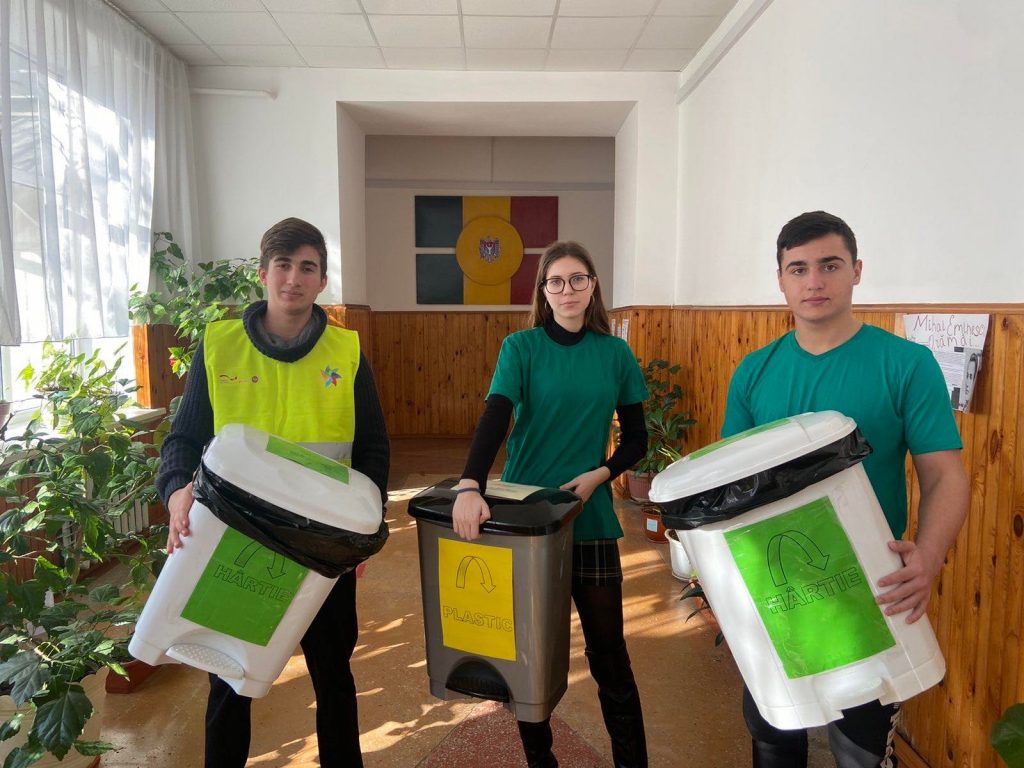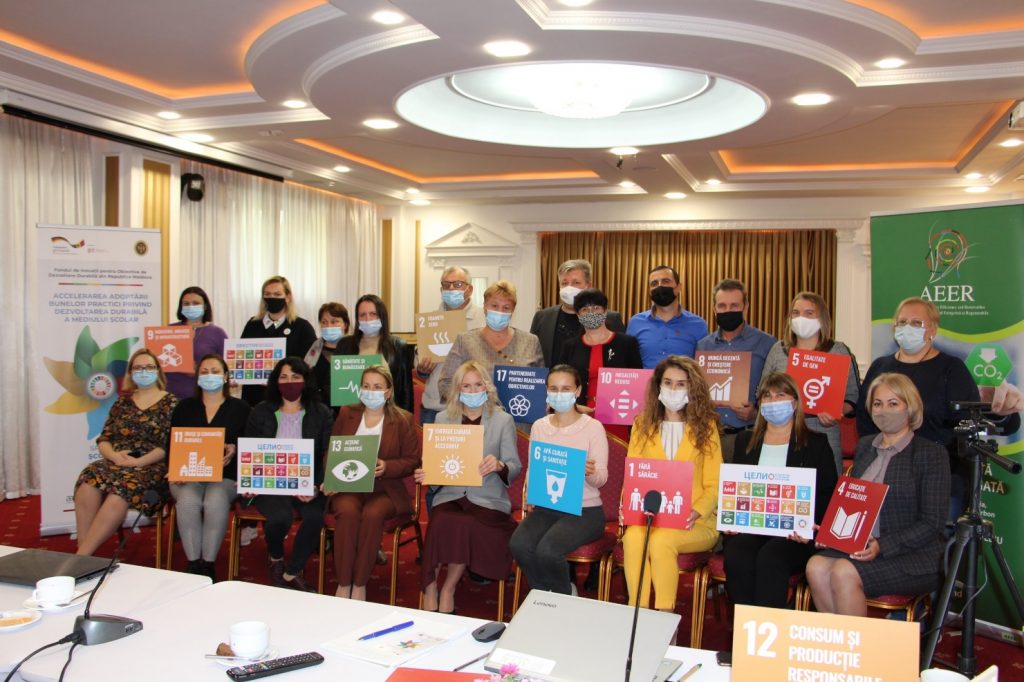Green School – an innovative project funded by the European Union, implemented in 12 schools across the Republic of Moldova

Students, teachers and employees from 12 schools in the Republic of Moldova learn and practice a sustainable planning model, with an emphasis on energy and the environment. The EU funded project “Towards a Greener, Sustainable and Efficient School”, entitled “Accelerating the Adoption of Good Practices on Sustainable Development in the School Environment”, is based on experiential learning in and out of the classroom, and the involvement of students and teachers in environmental problem solving.
The educational institutions participating in the project received practical guidelines for improving the school environment and a kit with specialised tools for assessing the indoor microclimate. To monitor the environmental parameters, plan and implement activities, a Green Team was created in each of the schools made of at least 10 people including teachers, students and parents.

In order for them to feel empowered as agents of change, the project provided them with opportunities to increase their skills, to transform their school and to change their behaviour. Since November 2021, project experts visited each of the Green Teams – both offline and online – to transfer knowledge on 4 thematic areas: energy efficiency and microclimate, waste management, green spaces in schools. At the same time, the Green Team members learned on how to communicate and raise public awareness on the environmental issues. As a result of these activities a list of recommendation on how to improve the situation in each of the schools was drafted for further implementation.
Following the capacity building activities, the coordinators of the 12 Green Teams together with students started developing an Action Plan to improve the ecological environment in their own school. They set specific objectives and actions to improve the ecological environment of schools, based on measurements using professional tools. Based on the identified problems, each school will submit a series of project proposals for funding, one of which will be supported with a mini-grant for the implementation of the solutions found.

All students involved in the activity are very enthusiastic about sharing their experience on their social pages, developing their communication skills, formed within the project. Through photos, posts, videos, drawings, they draw the attention of the local community to energy and environmental issues, share good practices and success stories in their school.
The 12 beneficiary educational institutions within the project are:
- Gymnasium “Decebal”, Chisinau;
- Lyceum “Grătiești”;
- Lyceum “Nicolae Casso”, Chiscareni, Sangerei district;
- Gymnasium “Alecu Mare”, Slobozia Mare village, Cahul district;
- Gymnasium “Paraskiewa Wiszniowska”, Vishniovca village, Cantemir district;
- Gymnasium Constantinovca, Causeni district;
- Gymnasium Pruteni, Falesti district;
- Lyceum “Ştefan cel Mare”, Șoldănești;
- Lyceum „C. Sibirschi”, Chisinau;
- Lyceum “Aristotle”, Chisinau;
- Gymnasium “G. Coșbuc”, Andrușul de Jos village, Cahul district;
- Gymnasium “Vasile Lupu”, Chisinau.

The EU funded project “Accelerating the adoption of good practices on sustainable development of the school environment” is carried out by the Alliance for Energy Efficiency and Renewables (AEER), in partnership with the Agency for Energy Efficiency (AEE) and the Association of Environmental and Ecological Tourism Journalists (AJMTEM). The activity is implemented within the project “Support for the Government of the Republic of Moldova in implementing the 2030 Agenda” funded by the German Federal Ministry for Economic Cooperation and Development (BMZ) and implemented by the German Agency for International Cooperation (GIZ).